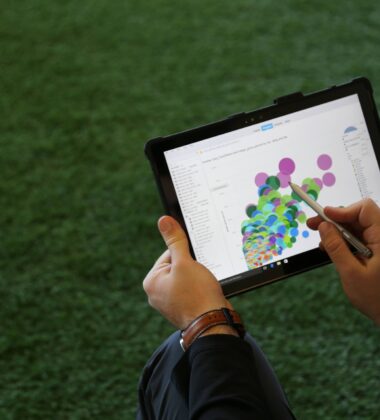What Is Google Analytics 4 and How Is It Different?
Google Analytics 4 is a new property for collecting your data. It's different from Universal Analytics in that it shifts from being a relational database structure to event-based. This change enables you to gain more insights, deeper analytics, and incorporate machine learning.
With Google Analytics 4 you will notice several improvements, including:
- Improved data usage
- The new custom reports are powerful and easy to use
- Improved user lifecycle tracking
- Create custom audiences
- New Custom Dimensions
- Powerful machine learning features
- Better Google Ads integration
- Improved attribution reporting - See where users came from originally vs where they came from in this session.
What Are Some Key Features and Benefits of Google Analytics 4?
| Marketing Channel Optimization | Customer Experience | Business Operations |
|---|---|---|
|
|
|
When Is Google Analytics 3 / Universal Analytics Going Away?
Here is what Google has said so far...
All standard Universal Analytics properties will stop processing new hits on July 1, 2023, and 360 Universal Analytics properties will stop processing new hits on October 1, 2023. After that, you’ll be able to access your previously processed data in Universal Analytics for at least six months. Source: Prepare for the future with Google Analytics 4.
How do We Migrate to Google Analytics 4?
There are two methods to migrate your data collection to a new GA4 property:
- Self-directed: Google has created a helpful guide to migrating data over. Follow the steps as outlined here.
- Discuss your migration needs with a Three Ventures consultant, and we will prepare a custom migration strategy, timeline, and budget to ensure the work is done correctly, and efficiently, the first time. Contact us today.
How Can I use GA4 data to Improve My Marketing Performance?
Our analytics team has compiled some of the best ideas in this Google Analytics 4 infographic for how marketing teams can gain customer insights, optimize marketing campaigns, and quantify your marketing ROI.

How does Google Analytics 4 Improve my Google Ads Campaign Performance?
Google Analytics 4 has several unique and powerful new features that will supercharge your Google Ads campaigns.
Remarketing Audiences
Adding audiences to a campaign or ad group for remarketing lets you use advanced behavioral data to target remarketing ads like people who visited a case study page, watched a video, and didn't visit the careers page. This feature gets stronger the more effort is put into analytics as pretty much anything in analytics can be used to build audiences.
Conversion Import
Importing analytics conversions feeds more data into Google Ads machine learning algorithms. This lets you improve algorithm performance while showing analytics conversions beside ad conversion data.
Predictive Audiences
Using GA4's predictive audiences lets you extend your remarketing and target people based on churn or purchase probability letting you test how targeting ads at different probability segments affect revenue. Does targeting ads at likely purchasers increase revenue? Or just waste ad spend? What about unlikely purchasers?
Cost Data Import
Importing cost data from non-Google campaigns into GA4 lets you see how your Facebook campaigns are performing compared to Google Ads campaigns using the conversion goals set up in GA4.
Conversion Modeling
Google is preparing for the cookie-less world with data privacy concerns by running conversion modeling which “estimates online conversions that can’t be observed directly”. Meaning, Google compares demographic data of observed conversions and compares that with similar demographics to add implied conversions.
Ready to get started with GA4?
We've already helped 20+ clients understand more about their customers. Start focusing your marketing efforts on your best customers and improve your engagements / conversions.
Get started today.




















